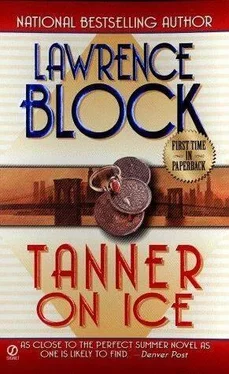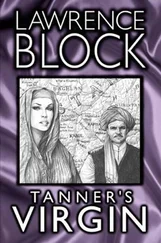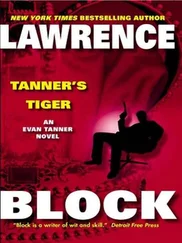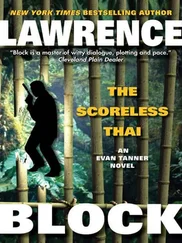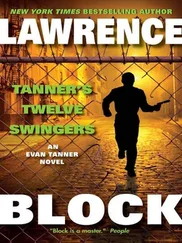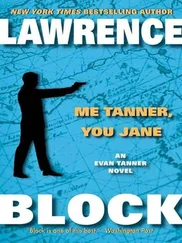“It sounds cheerful.”
“No,” she said, “it is not cheerful. It is sad, like everything in this place. But it is a little better than this. Evan, could you give me some money? I will go buy whiskey.”
“Where will you go?”
“There is a night market a few hundred meters from here. They sell whiskey at one of the stalls, but you have to know to ask for it. It is not very good whiskey. It is made in Burma, so how good could it be? But it is whiskey.”
“How much is it?”
“Six hundred kyat. Five dollars if you pay in hard currency. I am not trying to cheat you, Evan.”
“I didn’t think-”
“Of course you did. A woman comes into your room and asks you for money, what else are you to think? But I am not after your money. You are welcome to come with me to the market. But I do not think you wish to leave the hotel. I saw your face when you crossed the street, and I sensed that tonight you do not care to be where people can see you.”
“Well,” I said, “you’re right about that.”
“Come to my room, Evan. I will look at your shoulder. And you can rest while I go for the whiskey. You will be more comfortable there than here.”
I sat on her bed and looked out the window, and I watched as she left the hotel and walked purposefully down the street. She turned at the corner and disappeared from view.
Her room was nicer than mine, just as she’d said. It was larger, and the bed was wider and the mattress thicker. She’d taped some pictures cut from magazines on the green-gray walls, and there was indeed a scrap of worn carpet on the floor. There were two chairs instead of one, and a small chest of drawers that held her neatly folded blouses and longyis. There was no closet, but a row of pegs on the far wall held other garments, and several pairs of shoes and sandals were lined up beneath them.
I was turning the pages of a year-old copy of Paris Match when the door opened and she burst in, carrying a bottle wrapped in a sheet of newsprint. She unwrapped it, a flattened one-liter bottle, and filled the two glasses from on top of the dresser.
“Ayet piu,” she said, handing me one. I thought that was the local equivalent of s Cheers! or Prosit! or Here’s mud in your eye!, but it turned out to be the name of what we were drinking. The name meant white liquor, and when I’d had much the same thing ages ago at a Macedonian get-together in Tennessee, they’d called it White Mule. In the west of Ireland it’s poteen, and other cultures call it other things, but whatever you call it, it tastes like fusel oil and kicks like, well, like a white mule.
“Ayet piu,” I said, even if it wasn’t a toast, and we both drank. “Piu,” I said, and shuddered. I wasn’t repeating the last name of the stuff, either. I was giving my considered opinion of its bouquet and flavor.
“It is terrible,” she agreed. “But it performs the task.”
“Performs the… oh, right. It gets the job done.”
And I have to say it did. As warm as it was in Rangoon – and it hadn’t cooled off much in the evening, either – I’d been starting to feel the chill that never entirely left my bones. But the ayet piu got right in there and fought the good fight. It smelled foul and tasted worse, but it got the job done.
I was working on my second glass of the stuff when Katya sat next to me and told me to take my shirt off. She clucked with concern when she saw my shoulder, and I could see why. It was already turning an interesting color. Her fingers probed the sore spots, and she didn’t have to press hard to make me cry out.
“How did you do this, Evan?”
“I was getting out of a car.”
“You said you fell.”
“It was more of a dive,” I said. “I went through the window.”
“Were you cut? Was it a bad accident?”
“It was the side window,” I said, “and it was open.” And I added a few words of explanation, without getting around to the question of why I’d thought it a good thing to leave a car in such an unorthodox fashion.
“But it’s just a bruise,” I said. “It’ll look bad tomorrow and worse the next day, but then it’ll start getting better.”
“I envy you,” she said.
“Why?”
“Because in two days you will start getting better. Days and weeks and months pass, and it never gets better for me.”
“What’s the matter, Katya?”
“What is the matter? I am in Rangoon.”
“I guess you’re not thrilled to be here.”
“I hate it,” she said.
“Why do you stay?”
“I stay because I can’t leave. To leave one needs papers. A passport, a visa to enter another country. One needs money for a ticket. I have none of these things. Christ, I had to beg you for five dollars for a bottle of bad whiskey.”
“It’s not that bad,” I said. “I’m starting to like it.”
“Well, I am not starting to like Rangoon. Or this – this castle I live in.” She extended a hand. “Look at it. I brought you upstairs because it is nicer than your room. But your room was just to sleep in. I live here, day after day after day. Look!”
“How long have you been here, Katya?”
“Forever.”
“That long,” I said.
“I do not even know how long,” she said. “I would have to count the months. What does it matter, Evan? You don’t want to hear my story, do you?”
“Why not?”
“It is not so interesting,” she said. “And my English is not so good, I am thinking.”
“Your English is just fine,” I said. “But what’s the easiest language for you to tell it in?”
“I suppose Russian. But it is not so good Russian, I am thinking. I have never been to Russia, so how do I know if it is good?”
In Russian I said, “Why don’t you tell me your story, Katya?”
Her eyes widened. “You speak Russian?”
“A little bit.”
“It would be good to talk a little in Russian,” she said. I suppose her Russian was accented, but I could follow her well enough. “If you are bored,” she said, “just close your eyes and go to sleep. I will tell myself you are deeply concentrating.”
“I won’t be bored,” I said. “And I won’t drift off. I won’t even close my eyes.”
She could have been reading the Rangoon phone book, if they had one, and it wouldn’t have put me to sleep. Because nothing does. But I can’t imagine how anyone could have dozed off listening to her story.
Her paternal grandfather was a Russian nobleman who led a brigade of Cossacks against the Bolsheviks in the fighting that followed the 1917 revolution. When the Red victory was inevitable, he escaped through Siberia into China, eventually reaching Nanking, where he met and married a Chinese girl, the daughter of a minor war lord.
A son born of that marriage fought with Chiang Kaishek, first against the Japanese, then less successfully against Mao’s forces. When the Nationalist army withdrew to Taiwan, he went in the other direction and wound up in French Indochina. He joined up with the French, and he was with them when Ho Chi Minh’s men defeated them at Dien Bien Phu.
“My family,” she said, “is never on the winning side. It is a great failing of ours.”
When the French surrendered, her Russian-Chinese father slipped out of the country in the company of a much younger woman, herself the illegitimate offspring of a liaison between a French merchant and a Vietnamese actress. The two wound up in Vientiane, in Laos, where they opened a restaurant and nightclub. It flourished, but then the political climate changed and they had to leave the country. They were in Thailand, among other places, and had wound up in Sri Lanka sometime in the early 1960s. They were there in 1964, when Katya was born.
Читать дальше
